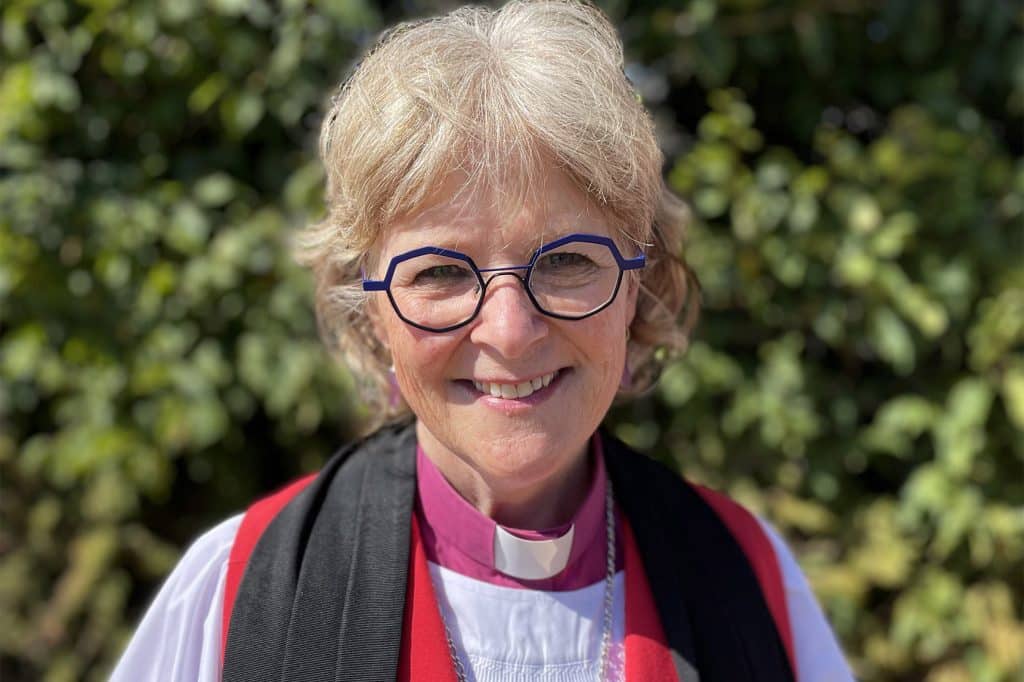
By Bishop Kate Prowd
3 August 2022
As Anglican bishops from around the world gather at Lambeth Conference, each of Melbourne’s Assistant Bishops will be providing reflections on the event. Here Bishop Kate Prowd reflects on her experience a few days into the conference.
When the Bishop of Lesotho, Right Reverend Dr Vicentia Kgabe preached her sermon on Sunday at the cathedral, I heard her say: “You’ve got it in you”. She was talking about our call to love and serve the Lord. It’s a phrase that resonates with Australians. I was moved by it to ponder how when we are fed by the sacraments of bread and wine, we do literally have it in us to do what God asks of us.
And so, encouraged to think I had it in me, it was with enthusiasm that I presented at the church planting workshop headed up by Bishop Ric Thorpe, of Islington, London. It was an exciting opportunity to showcase some of what the Melbourne diocese is doing in this space and explain the infrastructure we have developed to foster new plants and support revitalization projects.
Last night the Bishop of London, the Right Reverend and Right Honourable Dame Sarah Mullally hosted 97 women bishops for an evening meal. 97! Last Lambeth in 2008, there were a total of 18 women. The one before that in 1998, only 11. The numbers speak for themselves. As I looked around the room, I saw so many courageous women who have stepped out, trusting that they’ve got it in them to love and serve our Lord as leaders in our Anglican Communion.
Read more: Lambeth calls, a step towards shared witness
The Lambeth Calls continue, and the first for today was reconciliation. We were reminded that reconciliation is the journey of a lifetime, always requiring work and effort. We were also reminded how we need to be reconciled over and over again. We heard of the suffering in countries where there is an absence of reconciliation, and the psychological, emotional and spiritual wounds that result from this – evidenced by colonialism, apartheid, the slave trade, racism, tribal conflicts. The process of reconciliation involves the power of love rather than the love of power. It is God’s gift to the world and so it is our duty to offer it to our neighbour.
The second call was on human dignity. Part of this call addressed issues of same-sex marriage and human sexuality. The resolution of Lambeth 1.10 (1998) remains: that is, that marriage is between a man and a woman.
It was anticipated that this call might be the most controversial of the calls for the bishops, given the expressed deeply held views on both sides of the argument concerning same-sex marriage and views of sexuality. There was no attempt in the call to alter the teaching of the Church on marriage. Archbishop Justin addressed the bishops, reminding us of the theological foundation that underpins our faith: namely that all humans are of equal worth, loved by God and those for whom Jesus died. He highlighted that for some, to question the teaching that marriage is between a man and a woman is unthinkable and to contemplate changing this challenges their very existence. For others, he added, not to change the Church’s traditional teaching on marriage challenges their very existence. In other words, we have more in common with each other than we think!
Read more: Hum of Lambeth recalls the heavenly multitudes to come
Archbishop Justin acknowledged that we bishops remain deeply divided on this issue. However, the purpose of the Call on Human Dignity was not to change people’s minds. Rather, he exhorted us to keep praying, listening and walking together even with, and in our differences. This is how we can continue being God’s Church for God’s world.
Discussion about the specifics of the call took place in our small groups which have now been meeting for three days to pray, study the Scriptures and discuss matters arising. In my group the discussion felt safe and honest, if raw. Around my table there was significant difference of opinion, hardly surprising given the eight people in my group represent seven countries. However, our exchanges were deeply respectful and the listening was treasured by all of us. This conversation is not over, but today a door has been opened. The call makes no mention of sanctions or exclusions. It states that in the ethnic and cultural diversities of the Anglican Communion, all are made in God’s image and all are equal. If I were to sum up (impossible really!) what happened in today’s call, it would be that there was confirmation that there is a place for everyone at The Table. We are all equally loved, and, as the psalmist proclaims, we are all fearfully and wonderfully made (Psalm 139).
I came away my heart strangely and unexpectedly warmed. “We bishops have got it in us,” I thought, to love and serve the Lord by the way we show love to one another in and through our differences and vulnerabilities.
This article was updated on 15 May 2023, to reflect that the Right Reverend Dr Vicentia Kgabe is Bishop of Lesotho.
For more faith news, follow The Melbourne Anglican on Facebook, Twitter, or subscribe to our weekly emails.






